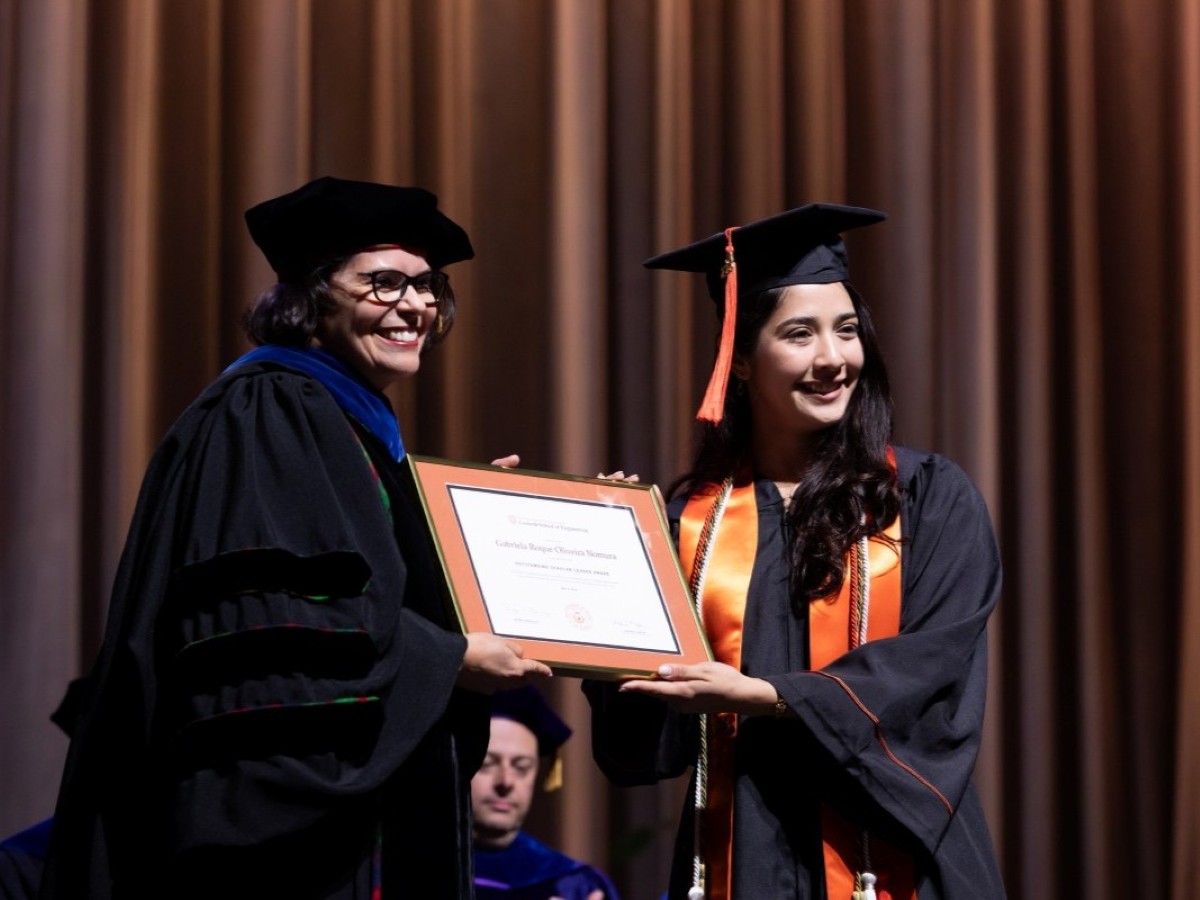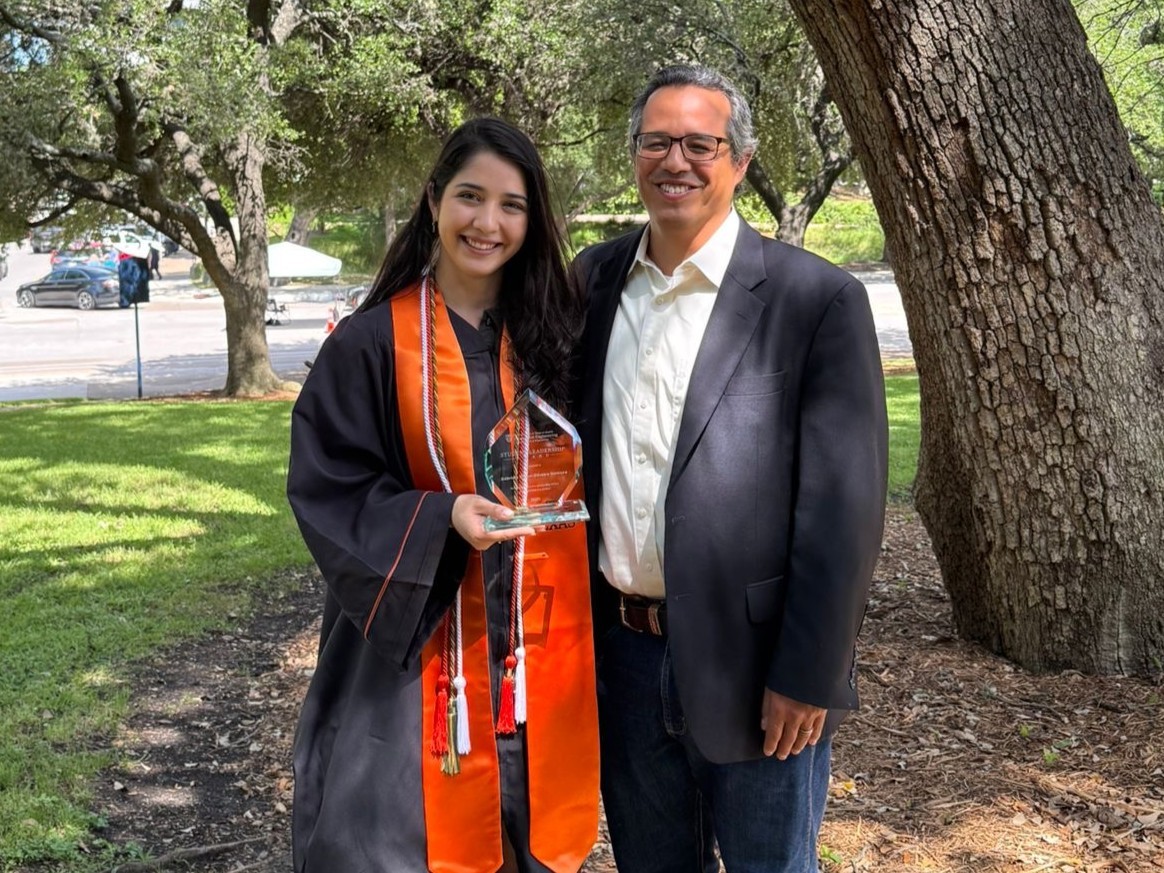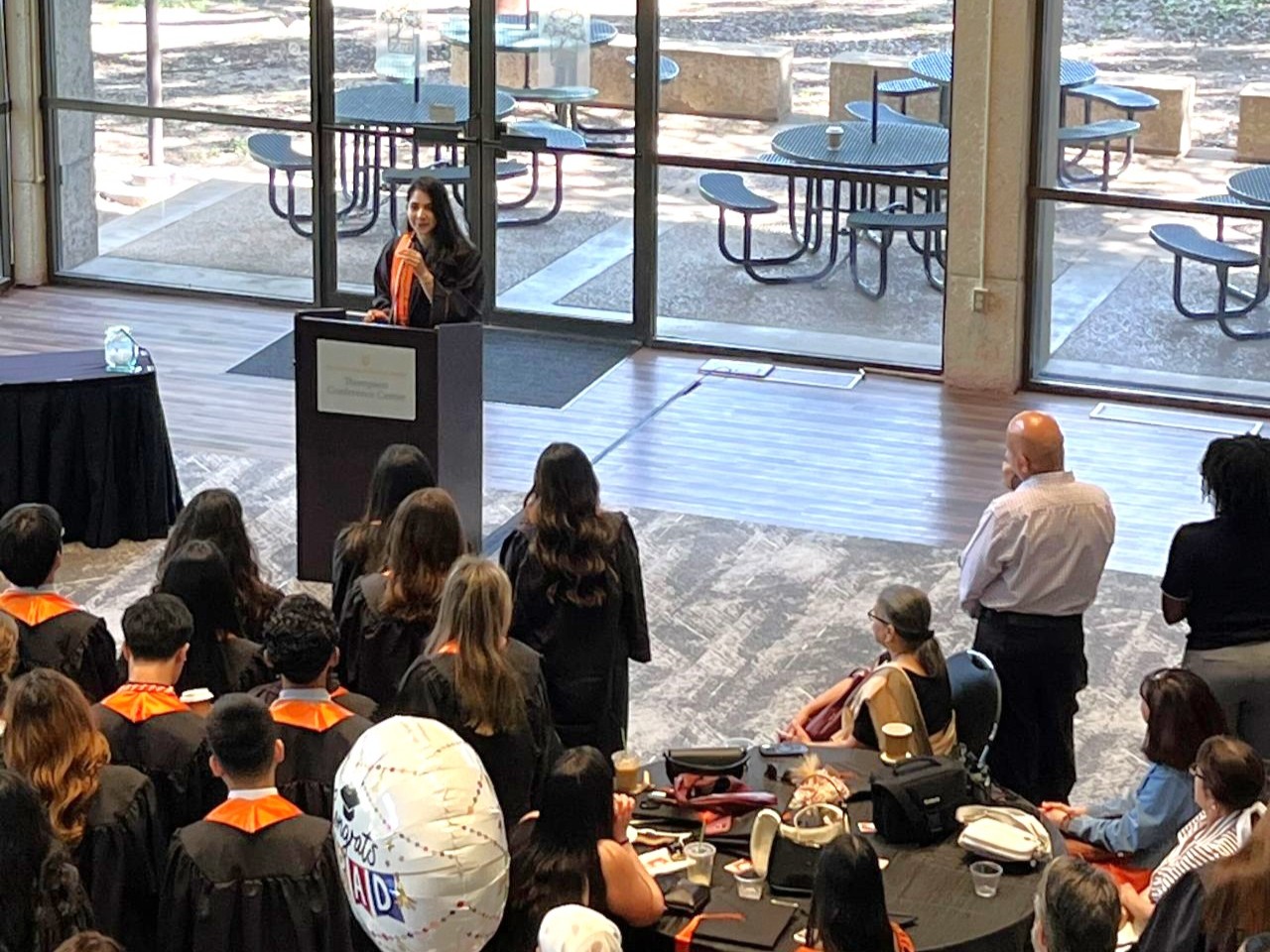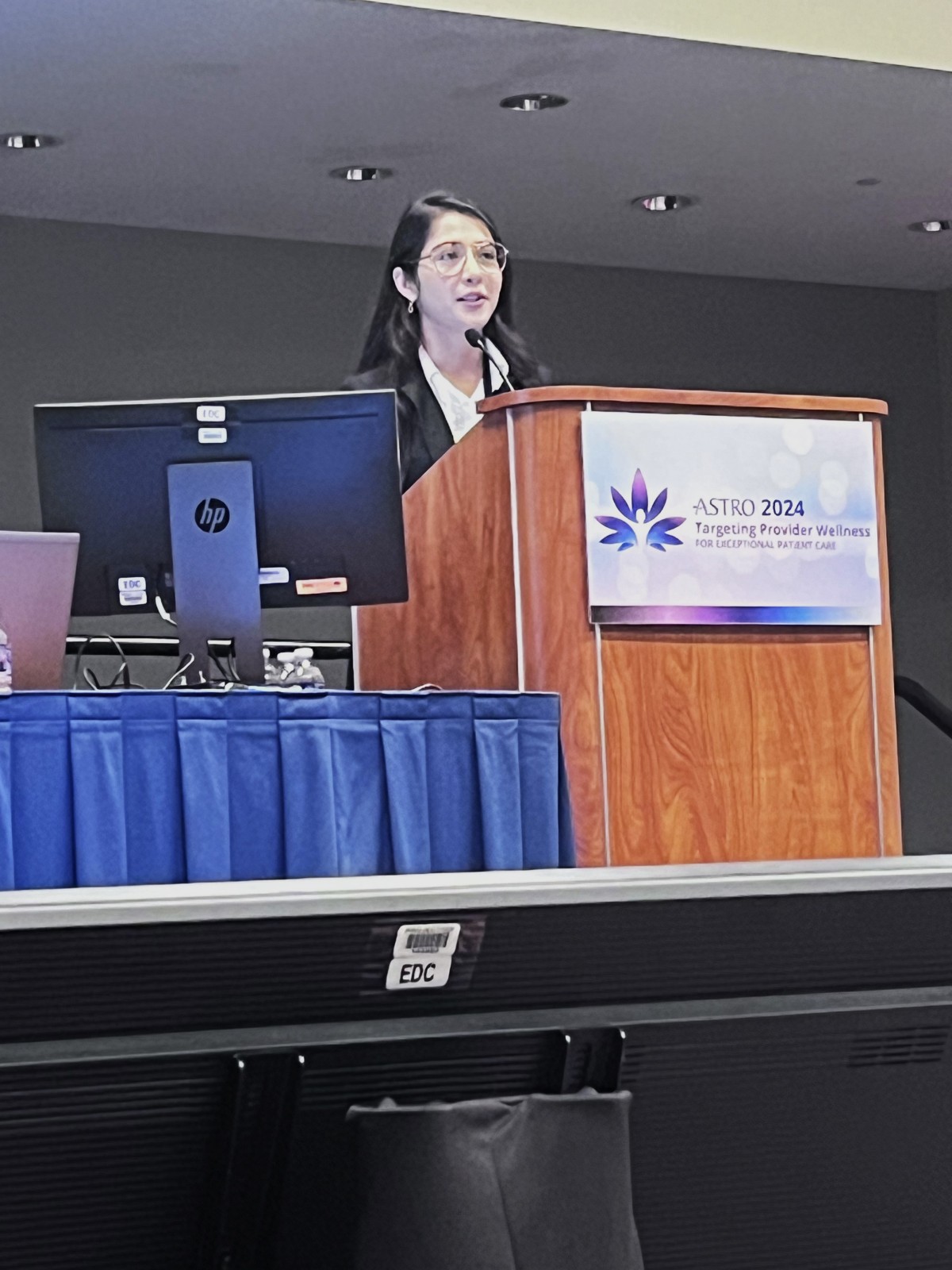
The best undergraduate researcher they’d ever seen, a natural leader, someone who cares deeply about others.
These are just a few superlatives that professors used to describe Gabriela Nomura. This year’s Outstanding Scholar-Leader just finished her bachelor’s degree in biomedical engineering, and she plans to become a combination physician and engineer.
Nomura has been a research assistant in professor Ed Castillo’s lab for the last two years. It’s a rare opportunity for an undergrad, and Nomura had to level up her skills immediately. When she first started, Nomura didn’t have a strong background in the technologies behind the research, like machine learning. However, within just a few weeks, she contributed to an AI model for organ imaging that underpinned a paper presented at the American Society for Radiation Oncology’s annual conference.
You might say she is a fast learner.
Outside the lab, Nomura has already helped many people at a young age. She’s worked with children who suffered third-degree burns, volunteered in elementary schools and taught teenagers about the dangers of smoking.
We got a chance to sit down with the new graduate and learn more about her motivation and career goals.

Congratulations on graduating and your Outstanding Scholar-Leader award! What made you decide to come to UT/the Cockrell School in the first place?
I chose UT because of its strong biomedical engineering program and breadth of research. In high school, I worked with patients who underwent reconstructive surgery for third-degree burns and congenital birth defects. So, I was looking for a program that allowed me to understand prosthetics and contribute to medical innovations to improve health care outcomes.
What inspired you to pursue biomedical engineering?
I was inspired to get into biomedical engineering because of my work as a volunteer coordinator and board member of the House of Charity in Houston. I worked with many children from underserved countries who suffered third-degree burns from acid attacks and campfire accidents. Witnessing their treatment, prosthetic placements, and nose reconstructions made me understand the vital role of engineering in medicine. That fascinated me, and that is why I pursued a B.S. in biomedical engineering and am now going into a program to attain my M.D. and Master’s in Engineering.

What do you want to be when you grow up?
In the future, I aspire to be a physician-engineer. I would like to do clinical work while also designing medical devices to solve health issues that I encounter in my job as a medical doctor.
What’s something from your time at the Cockrell School that you are especially proud of?
0In my current field of research, medical imaging for radiotherapy treatment planning, speaking opportunities at major national medical conferences are highly competitive. That is why the accomplishment I am most proud of during my years at Cockrell was giving an oral presentation at the American Society for Radiation Oncology Annual Meeting in Washington D.C. I had the chance to present my year-long work, which is now published, to renowned researchers and clinicians in the field of radiation oncology. That experience allowed me to get feedback from the more experienced people in the room and helped me grow as a student and researcher.

The key to achieving that was having a support system around me and never giving up, despite failed attempts and unexciting results. My mentor, Edward Castillo, and my coworkers in the Dynamic Medical Image and Computing Lab always challenged me to deliver my very best, while also recognizing my accomplishments and hard work every step of my journey as a researcher. When training the machine learning model that was presented in that national conference, my coworker, Aaron, and I spent months trying to outperform the best-standing model. We failed countless times, but every failure was one step closer to success. And, after 8 months, our model was finally nominated as the state-of-the-art for lung lobes segmentation. The 10-minute presentation that I gave at the conference only gave a glimpse into all the effort that went into the months of completing that research project.
What advice do you have for current and future Texas Engineers?
My advice for the next class of Cockrell students, is not to be afraid of failure. Sometimes we may be too harsh on ourselves, but I believe that failing is a necessary part of any great journey. Failing is not proof of one’s incompetence, and it’s not a sign to give up. I have come to learn during these four years at Cockrell that failure is a natural part of the learning process and a vital step in creating something great. I cannot count how many times I’ve failed as a researcher, but now I realize that each time I failed was one step closer to succeeding. I thought that computational biomedical engineering wasn’t for me because it seemed that I wasn’t naturally good at it, but that simply wasn’t true. I just had to keep trying. Today, I am happy to say that this field has made me incredibly fulfilled and happy. Now that I am going to medical school, I am once again scared that I could fail. But I keep reminding myself that every time I fail, I have a new chance to stand up and try again.
